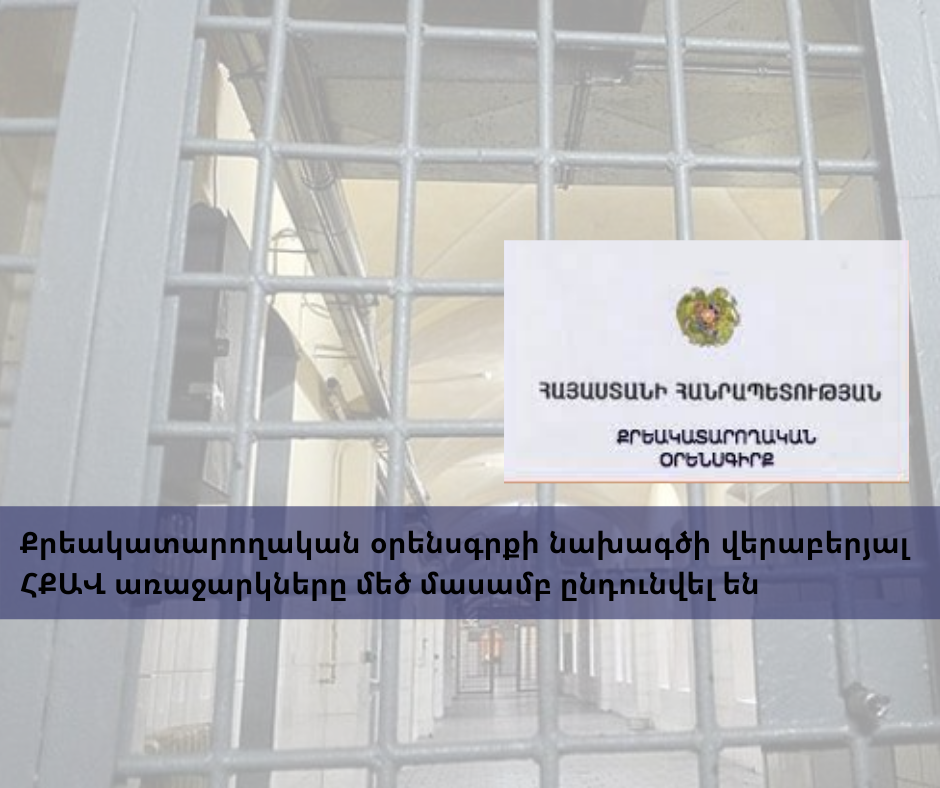HCA Vanadzor has presented its position regarding the Draft Law on “Making amendments and an addendum to the Penitentiary Code of the Republic of Armenia”, put for public discussion for the period of 19.08.2020 – 08.09.2020. The Draft concerns legislative regulations regarding the punishment cell and keeping a convict isolated. The amended draft was shared with the NA on 04․03․2022. The Organization presented the following recommendations:
-
Envisage a prohibition of transferring minors to the punishment cell.
-
Envisage for isolated convicts to have the same rights as other convicts, by enshrining at the same time that a doctor and a psychologist should visit convicts in the punishment cell every day.
-
Reduce the possibility of 6-time extension of the confinement period of a convict in the isolation cell and allow only 3 extensions of that period; and alongside, according to the aforementioned position, ensure safeguards mitigating negative consequences of isolation, more intensively with every extension.
-
The convict’s obligation – envisaged by the Draft – to substantiate the danger threatening themselves is disproportionate and impractical. This restriction violates a convict’s right to apply to be transferred to an isolation cell in the event of a threat to his or her safety and have the application satisfied; therefore, we recommend that the obligation be removed.
-
Establish that in case of a reasonable suspicion of a threat to a person’s safety, management of the correctional institution should take measures to prevent the threats, their causes, and also make a decision – on their own initiative – to isolate the relevant person.
-
Enshrine that the head of the penitentiary institution should urgently make a decision regarding the application.
Most of HCAV recommendations have been accepted, in particular, a prohibition was envisaged for transfer of minors to a punishment cell, a requirement was set for a doctor and a psychologist to visit the convict in the isolation cell daily, the convict’s obligation to substantiate the relevant threat was removed, the possibility of the head of the penitentiary institution to make a decision to isolate a person on his own initiative was canceled, and it was established that after identifying the danger, the penitentiary institution urgently – and no later than within two hours – makes a reasoned decision to keep the convict separate.
It is a negative circumstance that the regulations regarding the maximum terms of a convict’s solitary confinement have been removed, and instead, a regulation has been envisaged for indefinite isolation subject to regular review; whereas, HCAV expressly noted in their position that long-term isolation negatively affects a convict’s physical or psychological state, and the maximum terms of isolation must be envisaged.
The Organization will continue its work aimed at inclusion of the aforementioned and other recommendations in the new Draft Penitentiary Code.

